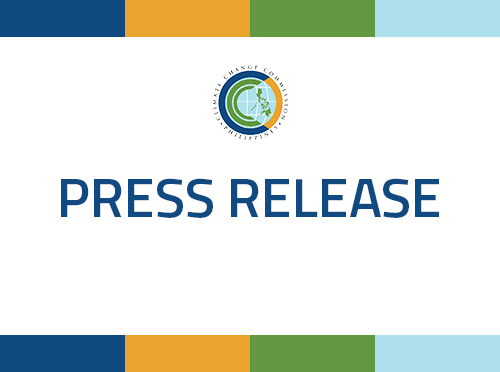
January 13, 2020 Monday

JANUARY 14, 2020 - At the Low Carbon Transport Forum organized by the Department of Transportation (DOTr) and the United Nations Development Programme (UNDP)-Philippines on January 7, 2020, Climate Change Commissioner Rachel Anne S. Herrera said that incorporating climate smart and low carbon perspectives in the national and local transportation plans is vital in our efforts to avoid increasing the levels of greenhouse gas (GHG) emissions, which has caused the climate crisis.
Commissioner Herrera added that the GHG emissions in our transport sector is projected to also significantly increase due to our country’s continually high population growth and economic expansion.
“Based on the latest GHG investory, the transport sector remains the third largest contributor of our country’s GHG emissions, next to the energy and agriculture sectors. The most significant contributor of GHGs in transport is the road sector. Although utility vehicles and trucks constitute a minority of the projected vehicle fleet, their average usage is high, resulting in an outsized share of vehicle activity,” Herrera explained.
Herrera expressed appreciation to the local governments of Baguio, Sta. Rosa, and Iloilo for their commitment to improve the quality of life of their constituents by shifting towards a climate-friendly and sustainable transport system. She also supported clean transport initiatives, such as the e-Sakay and Star8, whose operations are beginning to generate profit.
Herrera was also grateful for the Climate Change Commission’s partnership with the DOTr, there represented by Undersecretary Mark Richmund De Leon, noting that the department has set the bar for being the first to propose climate actions and submit contributions for our Nationally Determined Contributions (NDC) to help achieve the goals of the Paris Agreement of limiting global temperature rise to well below two degrees and even further to 1.5 degrees Celsius.
Herrera mentioned that these actions include the Public Utility Vehicle Modernization (PUVM) Program; Motor Vehicle Inspection System (MVIS) Program; Rail Projects under the Build-Build-Build (BBB) Program; and the Bus Rapid Transit (BRT) Projects—all of which are “unconditional commitments” and will not be dependent on foreign support and are expected to result in the avoidance of 10.71 million tons of CO2 of emissions by 2040.
With the recent devastation of Typhoon Ursula in the Visayas region, flooding and landslides in Indonesia, and bushfires in Australia, Commissioner Herrera stressed the urgency for real leadership on climate action.
“With the climate crisis in full swing, Earth has seemingly reached a tipping point. We could only hope that these tragic events would be the final push for governments and decision-makers across the globe to respond and act with a greater sense of urgency to transition from fossil fuel-based towards low carbon systems and economies,” said Herrera concluded.